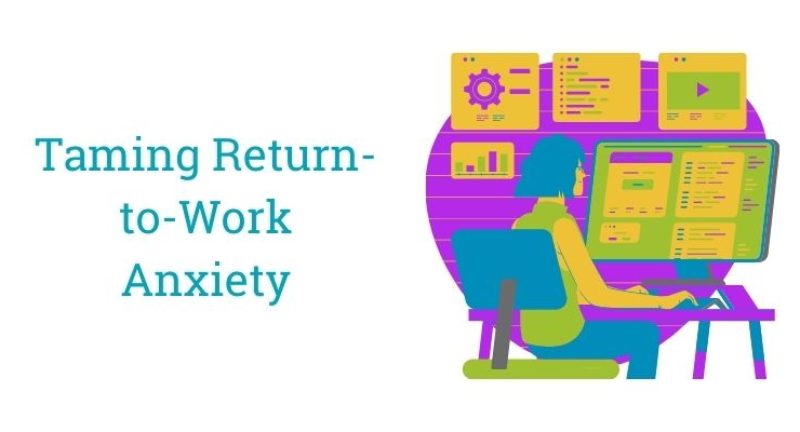
What Is the Difference Between Psychiatrists and Psychologists?
If you have mental health concerns — whether that’s anxiety, depression, or turmoil in your relationship — you should seek help. But who do you need to see? How do you know what type of mental health care provider you should talk to? Do you need a psychiatrist or psychologist? The answer might be: both.
Part of what makes Next Step unique is that we are a multidisciplinary team. In our case, a multidisciplinary team is a group of mental health care professionals who are members of different professions (e.g. psychiatrists, psychologists, pediatricians, coaches, etc.). Each provider offers specific services to you. A multidisciplinary team coordinates their services as the team works together towards a specific set of goals.
If you’re unsure which type of provider would benefit you, you’re not alone. There’s a lot of confusion out there! In this article, we’ll explore the differences and similarities between psychiatrists and psychologists — and why seeing both providers might be the right solution for you.
What Are the Differences Between Psychiatrists and Psychologists?
For those researching mental health care providers, this is a common question. There are a lot of differences, but also many similarities between these two types of providers. We talked to Dr. Brian Briscoe to gain a deeper understanding.
Similarities
Both psychologists and psychiatrists have a strong background and understanding of mental health conditions. Both providers:
- Have completed extensive (6 years or more!) doctorate-level graduate study and training after undergraduate studies
- Receive extensive training in evaluating, managing, and treating a broad variety of mental illnesses
The Big Difference

Dr. Briscoe says, “The primary difference between the two tends to be the scope of practice ‘in the real world.'” He continues, “Psychiatrists attend medical school as part of their training, and hence have the ability to conduct lab work and other medical tests to rule out medical causes of physical symptoms that are often associated with mental health conditions (e.g. lack of energy, insomnia, excessive sweating, etc.). And, given their medical background and license, psychiatrists may prescribe medications when necessary.”
PSYCHIATRY
Many psychiatrists have been extensively trained to provide psychotherapy, and a few psychiatrists provide hour-long psychotherapy sessions on a routine basis. However, due to the demands of the “real world” (e.g., lack of insurance coverage for psychiatrists to provide psychotherapy, paucity of psychiatrists vs. therapists, demand for medication management, etc.) most psychiatrists in the “real world” tend to provide shorter sessions, specialize medication management, and provide oversight of their patient’s comprehensive treatment plan — a plan that ideally involves a dedicated team of psychologists, therapists, and/or coaches.”
Psychologists do not have a medical degree, and hence are unable to prescribe medications. Dr. Briscoe continues, “However, psychologists tend to receive more training in neuropsychological testing than many psychiatrists — a tool that can be helpful in certain cases. Because psychologists end up providing more psychotherapy in the “real world” than some psychiatrists, their skills in psychotherapy are often perfected over time — and this skill can be of great service to persons struggling with anxiety, depression, OCD, and other forms of mental illness.”
Seeing a Psychiatrist and Psychologist Offers the Best of Both Worlds
If you are struggling with a significant mental health condition, it is generally best to see BOTH a psychiatrist and a psychologist (or therapist).
Dr. Briscoe highlights a key fact: “Good professionals (that includes both psychiatrists and psychologists) should be willing to collaborate with each other in order to do what is best for your health and wellbeing. If you are seeing a professional that does not seem willing to collaborate with other mental health professionals, we would advise some caution.”
Benefits of Multidisciplinary Treatment
Numerous studies have shown that multidisciplinary approaches to treatment tend to lead to better outcomes than medication alone or psychotherapy alone.”
WHAT MULTIDISCIPLINARY TREATMENT MIGHT LOOK LIKE
If you’ve never received mental health care from a multidisciplinary team, that’s okay. Dr. Briscoe explains what treatment might look like:
“Multidisciplinary treatment does not have to be extremely expensive. Once a medication has been started and the dose dialed in, your visits with the psychiatrist (M.D.) may only have to occur once every 2-3 months — or even less than that if the medication dose is going to stay the same. Visiting a psychiatrist can be a little more expensive at first because you have to do the initial evaluation and then the first few follow-up sessions every few weeks as you are getting the medication adjusted. But after that, the cost goes down quite a bit.”
On the other hand, “Psychotherapy generally works best if it is provided on a weekly basis. Some people do okay with every other week, but I generally recommend it once a week if possible. In my experience once a month does not work,” Dr. Briscoe says.
Consider this analogy:
Think of going to the gym. It doesn’t do any good to go to the gym or exercise once a week. If you are going to make any progress you really need to exercise every other day or at least three times a week. If you just go once a week, you won’t get anywhere. It’s just like that with psychotherapy — except that the frequency of psychotherapy needs to be once per week — not every two days.
Dr. Briscoe recalls another analogy, one that his former professor and Chair of his Department of Psychiatry once taught him: Psychotherapy is like a rubber band. “If you engage in therapy once a week, you s t r e t c h yourself just a little and make progress each week. But if you wait too long between sessions (say one month), the rubber band snaps back to its original shape and you don’t get anywhere.”
However, you should not have to do psychotherapy indefinitely. Depending on the type of psychotherapy you are completing, you might expect to meet weekly on average for a few months (or maybe even a little longer), then maybe taper off.
You don’t need to go to therapy forever. Dr. Briscoe says, “Gone are the days of meeting every week for 5-10 years. We don’t do that anymore.”
Explore Your Next Steps
Regardless of what type of mental health concerns you have, our team of skilled and compassionate providers can help you regain control of your life. At NextStep 2 Mental Health, it’s our mission to help you live a happier life, a better life. Give us a call at our Louisville, Kentucky office at 502-339-2442, or send us a message to request more information.
You can also request an appointment with our convenient scheduling tool here.
About Dr. Briscoe
 Dr. Brian Briscoe is a board-certified psychiatrist. He also serves as the medical director of adult programs here at Next Step. He was voted a “Top Doctor” by Louisville Magazine. You can make an appointment with Dr. Briscoe here.
Dr. Brian Briscoe is a board-certified psychiatrist. He also serves as the medical director of adult programs here at Next Step. He was voted a “Top Doctor” by Louisville Magazine. You can make an appointment with Dr. Briscoe here.
Related Posts
What Is the Difference Between Psychiatrists and Psychologists?
If you have mental health concerns — whether that's anxiety, depression, or...
6 Tips for Dealing with Return-to-Work Anxiety
Are you seeing the signs of return-to-work anxiety? Returning to in-person work...


